How to Manage POTS Naturally With Supplements
Postural Orthostatic Tachycardia Syndrome (POTS) is a complex circulatory disorder that affects an estimated 1-3 million Americans. Characterized by an excessive heart rate increase when moving from lying to standing, POTS is accompanied by symptoms like lightheadedness, fatigue, brain fog, and exercise intolerance that can significantly impact quality of life. Hopkinsmedicine While there’s no one-size-fits-all treatment, research has identified several evidence-based approaches that can help manage this challenging condition.
Understanding POTS
POTS is a form of autonomic dysregulation predominantly affecting young white females. Adult diagnostic criteria require a heart rate increase of ≥30 bpm within the first 10 minutes of standing or head-up tilt in the absence of orthostatic hypotension. NCBI
The pathophysiology of POTS is incompletely understood and undoubtedly multifaceted. Various mechanisms may be involved, including neuropathic, hyperadrenergic, hypovolemic, and autoimmune factors. ScienceDirect This complexity means that treatment must be individualized, targeting each patient’s specific underlying mechanisms.
First-Line Non-Pharmacological Treatments
Research consistently shows that several non-pharmacological interventions should form the foundation of POTS management:
1. Increased Fluid and Salt Intake
If you have the hypovolemic (low blood volume) form of POTS, increasing both fluid and salt intake is recommended to increase blood volume. Medical experts typically suggest drinking 2-2.5 liters of fluids daily, with water being the optimal choice, and increasing sodium intake from 3,000 mg to potentially 10,000 mg per day. Cleveland Clinic
This approach has proven particularly helpful for patients with blood pooling, hypovolemia, or hypotension. For most POTS subtypes (except hyperadrenergic), approximately two liters of fluid and three to five grams of salt are typically recommended daily. Dysautonomiainternational
Oral rehydration salts can be an effective way to ensure proper sodium and water intake, with studies showing they can reduce the need for IV hydration by 33%. Standinguptopots
Proper hydration sometimes requires supplemental minerals from sources like Great Salt Lake Minerals, which can help maintain electrolyte balance crucial for nervous system function.
2. Compression Garments
Compression garments provide mechanical external pressure to blood vessels in the legs, thighs, and abdomen, shifting blood back to the central circulation to increase preload and stroke volume. With increased stroke volume, cardiac output can be maintained without excessive tachycardia. Clinicaltrials
A recent study showed that wearing a girdle-like abdominal binder combined with knee-high compression socks provides the best results for people with POTS. Harvard Health
Research indicates that compression of all lower body compartments (calf, thigh, and low abdomen) appears most effective, followed by abdominal compression alone, while leg compression by itself seems less effective. Nih
3. Structured Exercise Program
Recent research has demonstrated that cardiovascular deconditioning (cardiac atrophy and hypovolemia) contributes significantly to POTS and its functional disability. Therefore, physical reconditioning through exercise training should be initiated early in treatment whenever possible. Nih
Studies show that reclined aerobic exercise, such as swimming, rowing, and recumbent bicycling, produces the best results. Strengthening core and leg muscles is also helpful. Cleveland Clinic
Using horizontal exercise (e.g., rowing, swimming, recumbent bike) at the beginning is a critical strategy, allowing patients to exercise while avoiding the upright posture that triggers POTS symptoms. As fitness improves, the duration and intensity of exercise should progressively increase, with upright exercise gradually added as tolerated. Nih
Exercise tolerance may be supported with adaptogenic herbs like Eleuthero Root, which has traditionally been used to combat fatigue and improve stamina.
4. Dietary Modifications
Eating large meals can worsen POTS symptoms as the body redirects blood for digestion. Healthcare providers often recommend consuming several smaller meals throughout the day instead of two or three large ones. Cleveland Clinic
A diet high in fiber and complex carbohydrates may help reduce blood glucose spikes and lessen POTS symptoms. Cleveland Clinic
Including nutrient-dense foods like Spinach Leaf, Spirulina, and Chlorella can provide essential vitamins and minerals that support overall health and potentially help with POTS-related fatigue.
Pharmacological Approaches
Currently, no medications have been approved by the FDA specifically to treat POTS due to a lack of large randomized controlled trials. However, in small studies, several medications have shown promise when used off-label. Ahajournals
Healthcare providers sometimes prescribe medications such as fludrocortisone (increases salt retention and blood volume), pyridostigmine (may reduce tachycardia), midodrine (causes widespread vasoconstriction), and beta-blockers (may reduce upright tachycardia). Cleveland Clinic
The approach to medication treatment centers on addressing the underlying pathophysiologic mechanism. For example, stockings, abdominal binders, and vasoconstrictors are used to enhance venous return in partial neuropathic POTS. PubMed
The Role of Micronutrients and Hardy Nutritionals
Emerging research suggests certain micronutrient deficiencies may contribute to POTS symptoms in some patients:
Dr. Svetlana Blitshteyn, founder of the Dysautonomia Clinic, typically tests POTS patients for vitamins B1 (whole blood), B6, B9 (folate), B12, D (25-OH), E, and homocysteine levels. Standinguptopots
A case report documented a middle-aged woman with hyperadrenergic POTS who was refractory to conventional treatment but improved significantly after being treated with methylated B vitamins for her heterozygous catechol-O-methyltransferase (COMT) Val158Met polymorphism. Nih
A study found significantly lower vitamin B12 levels in adolescents with vasovagal syncope compared to control subjects, with researchers defining vitamin B12 deficiency as serum levels below 300 pg/mL. PubMed
Research has associated low vitamin D with orthostatic intolerance in children and cardiac autonomic dysfunction. In one case report, a POTS patient with adequate vitamin D3 but a genetic inability to convert it to calcitriol (the activated form) went into remission after calcitriol supplementation. Standinguptopots
Key micronutrients that may play a role in POTS management include:
- Vitamin B1 (Thiamin) – Essential for energy metabolism and nervous system function
- Vitamin B6 – Important for neurotransmitter synthesis and regulation
- Folate – Critical for methylation processes in the body
- Vitamin D – Associated with autonomic function and cardiovascular health
- Magnesium – Supports muscle function and cardiovascular health
- Zinc – Important for immune function and enzyme activity
Additional supplements that may support overall health in POTS patients include:
- L-Theanine – May help with anxiety and stress management
- NAC (N-Acetyl Cysteine) – Supports detoxification and antioxidant function
- Alpha Lipoic Acid – A powerful antioxidant that supports mitochondrial function
- Acetyl-L-Carnitine – Helps with energy production and mitochondrial health
A comprehensive approach to micronutrient support can be found in the Dictionary of Supplements and Herbs for Mental Health, which provides detailed information on various supplements that may benefit neurological and autonomic function.
Hardy Nutritionals for POTS Management
While direct clinical trials testing Hardy Nutritionals specifically for POTS are currently limited, there is a theoretical rationale for considering broad-spectrum micronutrient supplementation in POTS management based on the known roles of micronutrients in neurological function, autonomic regulation, energy metabolism, and pain modulation.
Hardy Nutritionals, particularly their Daily Essential Nutrients (DEN) formulation, provides a comprehensive blend of essential vitamins, minerals, amino acids, and antioxidants designed for optimal absorption and balance. The formulation emphasizes bioavailability through the use of chelated minerals and balanced nutrient ratios.
Research on Hardy Nutritionals’ products has primarily focused on mood and behavioral disorders such as ADHD, bipolar disorder, anxiety, and stress. Given that many POTS patients experience symptoms like fatigue, brain fog, anxiety, and sleep disturbances that overlap with these conditions, the documented effects of DEN on stress and anxiety in other populations might theoretically offer some indirect benefit to POTS patients by improving overall well-being.
Several mechanisms support the potential role of broad-spectrum micronutrients in POTS:
- Autonomic Nervous System Function: B vitamins (particularly B1, B6, and B12) are crucial for nerve function and neurotransmitter synthesis. Deficiencies have been linked to autonomic neuropathy in some contexts.
- Energy Metabolism: B vitamins serve as essential cofactors in energy production via mitochondrial pathways, which may help address the profound fatigue experienced by many POTS patients.
- Mitochondrial Support: Emerging theories suggest mitochondrial dysfunction may contribute to fatigue and other symptoms in POTS. Micronutrients including B vitamins, minerals, and antioxidants are vital for optimal mitochondrial function.
- Neurotransmitter Balance: Many micronutrients serve as cofactors in the synthesis and metabolism of neurotransmitters, potentially supporting improved mood regulation and cognitive function.
While Hardy Nutritionals supplements could be considered as a complementary approach, particularly for POTS patients with documented nutrient deficiencies or those with significant neuropsychiatric symptoms, it’s important to note that they should not replace established medical care. Any supplementation should be discussed with healthcare providers familiar with the individual’s complete clinical picture.
Digestive Support
Many POTS patients experience gastrointestinal symptoms that can impact nutrient absorption. Supporting digestive health with enzymes such as Amylase, Papain, and Bromelain may help improve nutrient utilization.
Probiotic support with Lacto-Bifidus can promote gut health, which is increasingly recognized as important for neurological and autonomic function through the gut-brain axis.
Herbs like Ginger Root Extract and Peppermint Leaves may help ease digestive discomfort and nausea that often accompany POTS.
Antioxidant Support
Oxidative stress may play a role in autonomic dysfunction. Antioxidant-rich supplements like Bilberry Fruit Extract, Grape Seed Extract, and Vitamin C can help combat oxidative damage and support overall cellular health.
Individualized Approach to Treatment
Treatment for POTS should be tailored to each individual because symptoms and underlying conditions vary widely. POTS can complicate other chronic health conditions, from asthma to inflammatory bowel disease, and often coexists with conditions like myalgic encephalomyelitis/chronic fatigue syndrome, fibromyalgia, and gastrointestinal motility disorders. Hopkinsmedicine
Just as each individual has a different combination of symptoms, each person has a unique response to treatment options. Some people respond very well to daily recumbent exercise, while dietary changes are more important for others. Standinguptopots
Working with healthcare providers who understand both conventional and complementary approaches can help develop a personalized protocol that addresses each patient’s unique needs.
The Future of POTS Research
Despite being recognized as a syndrome for over 25 years, large gaps remain in POTS research, resulting in an incomplete understanding of the condition and limited validated interventions. There are still no licensed medications specifically for POTS, an area identified by both clinicians and patient groups as a high research priority. ScienceDirect
A 2019 National Institutes of Health Expert Consensus Meeting identified significant knowledge gaps and outlined clinical and research priorities for POTS. The functional and economic impacts of this disorder are significant, yet its pathophysiology remains incompletely understood, contributing to suboptimal care for many patients. ScienceDirect
The Mixture of Autism and ADHD
While living with POTS presents significant challenges, implementing evidence-based strategies can substantially improve quality of life for many patients. The foundation of treatment typically includes increased fluid and salt intake, compression garments, gradual exercise reconditioning, and dietary modifications, with medications and micronutrient therapies added as needed based on individual symptoms and underlying mechanisms.
Broad-spectrum micronutrient support through products like Hardy Nutritionals’ Daily Essential Nutrients may offer additional benefits for some patients, particularly those with documented nutrient deficiencies or significant neuropsychiatric symptoms. However, well-designed clinical trials specifically examining these supplements in POTS populations are needed to establish their efficacy.
As research continues to advance our understanding of this complex condition, treatment approaches will likely become more targeted and effective. For now, working closely with knowledgeable healthcare providers to develop a personalized management plan offers the best path forward for those living with POTS.
Learn more about how micronutrituib can treat mental health Issues.
As a thank you to our readers, you can get 15% off your first order of Hardy Daily Essential Nutrients by using code TAPROOT at www.hardynutritionals.com. Offer valid for new customers only. Always consult your healthcare provider first to determine if micronutrient supplementation is appropriate for your individual needs. We recieve a small comission on sales.
Note: This article is for informational purposes only and does not constitute medical advice. Always consult with your healthcare provider before making changes to your treatment regimen.
For more information on supplemens for mental health consult our comprehensive guide for micronutrient and supplement therapy and how it can treat specific issues and enhance certain modalities of therapy.
If you’re interested in exploring micronutrient therapy as part of your anxiety treatment plan, Hardy Nutritionals offers a range of products to fit your specific needs. Their Daily Essential Nutrients clinical strength formula provides comprehensive, research-backed dosages in convenient capsule or powder form.
For 15% off in savings, use the offer code “Taproot” at checkout on the Hardy Nutritionals website to receive 15% off your order. @ GetHardy.com
It’s important to remember that while micronutrient therapy can be a powerful tool for managing anxiety, it is not a replacement for professional mental health care. Always consult with a qualified healthcare provider before starting any new supplement regimen, particularly if you have pre-existing health conditions or are taking medications.
Disclaimer: These statements have not been evaluated by the Food and Drug Administration. These products are not intended to diagnose, treat, cure, or prevent any disease. Please consult with a qualified healthcare professional before beginning any supplement regimen, particularly if you are pregnant, nursing, have a medical condition, or are taking medications. The information on this website doesnot constitute medical advice. We recieve a small commision on sales with Hardy Nutritionals through our offer code. Our affiliation does not effect treatment or recomendations made by Taproot authors, therapists or other staff.











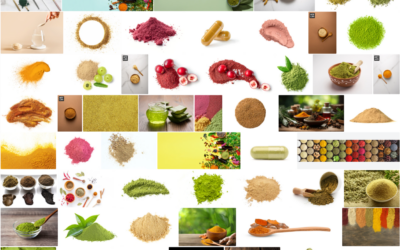




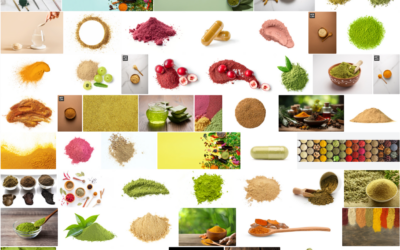



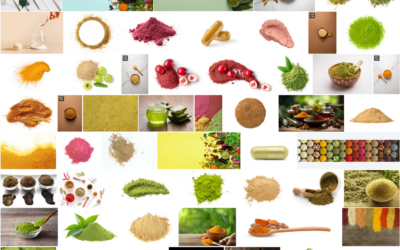

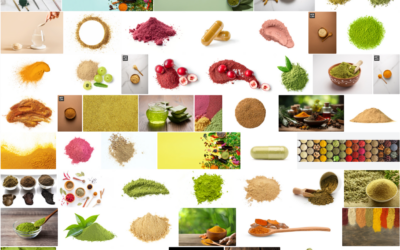


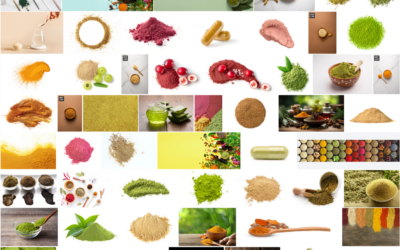
0 Comments